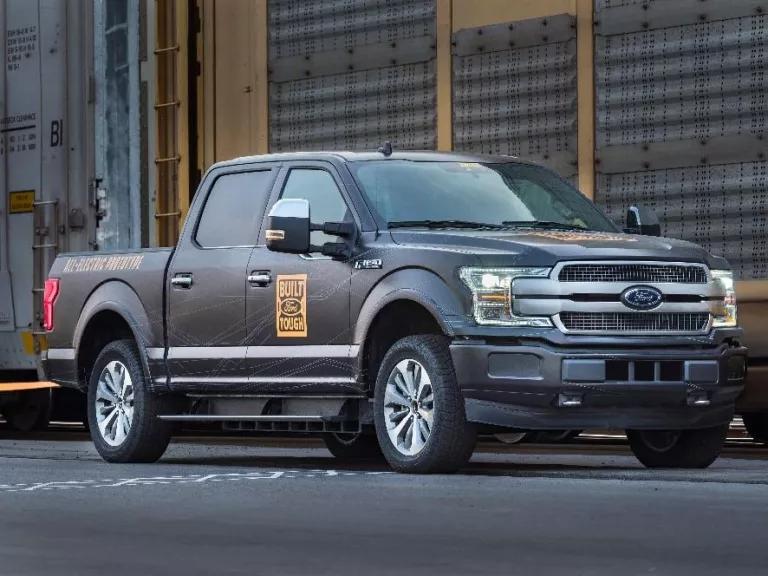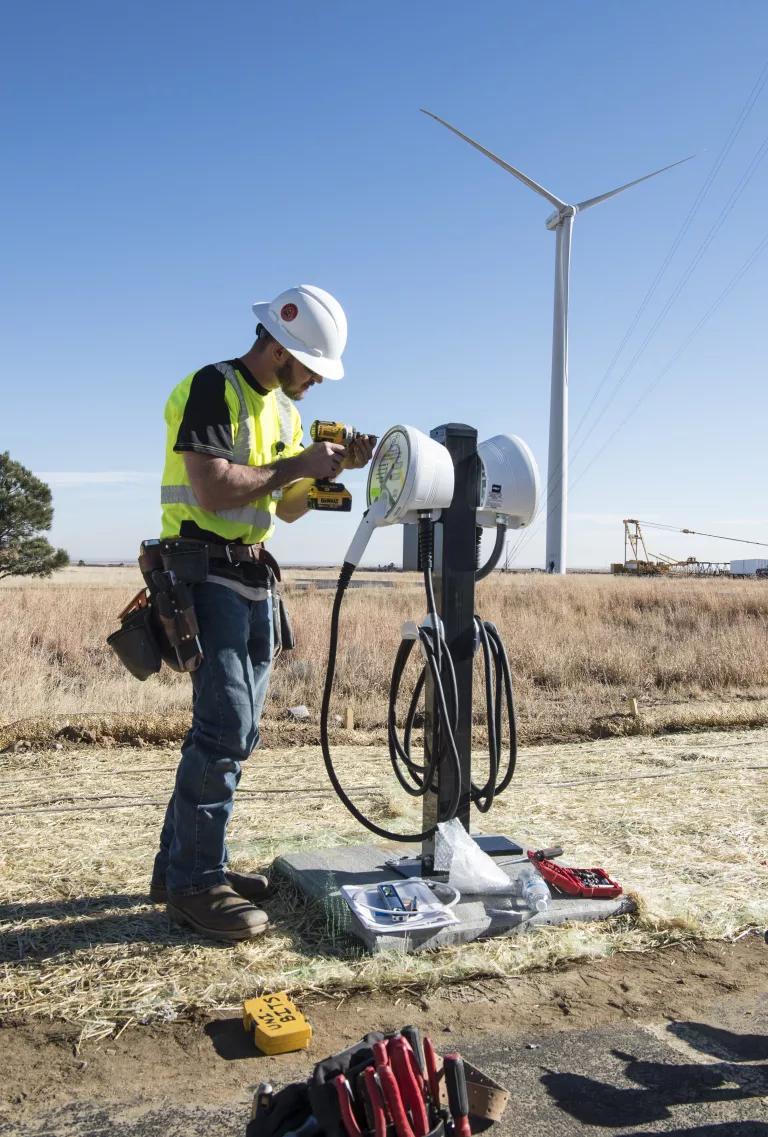Now Teed Up in Richmond: Va's Biggest Climate Action Yet

The Virginia General Assembly may be holding a short session now, but it can have its biggest impact yet on curbing climate change by passing a commonsense bill to reduce climate pollution, give consumers more options, and strengthen our economy.
HB 1965, the Clean Cars Virginia bill, patroned by Richmond’s Del. Lamont Bagby, tackles for the first time Virginia’s biggest contributor to climate change—the exhaust belched out from the millions of passenger cars, pickups, minivans, and SUVs on the road in the Old Dominion.
Del. Bagby’s commonsense approach—also part of Gov. Northam's own Energy Plan—requires vehicle manufacturers to continue to roll out cleaner vehicles, known as "LEVs" (low-emissions vehicles), that emit less climate pollution, soot, and smog-forming pollutants that worsen asthma. Clean Cars also requires manufacturers to offer a rising number of cars, SUVs, and pickup trucks powered more cheaply by electricity, that is, electric vehicles (or “EVs”). Both advances would kick in for 2025’s cars, trucks and SUVs.
(Here’s more info on Clean Cars Virginia, how it works, and what its health and economic benefits will be, and the misinformation you can expect to hear from climate deniers associated with Big Oil and other climate polluters.)
If Clean Cars Virginia is passed and signed into law by Gov. Northam, Virginia would join 14 other states that already adopted stronger state-level “LEV” pollution standards. They have taken action under one of our nation’s bedrock environmental laws to protect us from pollution: the U.S. Clean Air Act.
The U.S. Clean Air Act wisely gives states that face high in-state air pollution—and Virginia’s on that list—the option to set their own state-level standards on air pollution. And Clean Cars Virginia does just that, rather than following the federal pollution standard, which was hacked at by the disastrous Trump administration.
In addition to seeing cleaner cars on the road beginning in 2025, the bill will add Virginia to the more than 1 in 5 states—including neighboring Maryland—that already require Detroit send a modest number of those electric vehicles that emit zero pollution.
Virginians Are Already Missing Out TODAY
Because Virginia lags behind the times on cleaner and electric-powered cars, Virginia consumers, our economy, and the air we breathe here all suffer.
If Clean Cars Virginia isn’t enacted, we’ll be stuck with far fewer consumer choices across the Commonwealth—be it cleaner and cheaper-to-drive gas or diesel cars and pickups, or electric vehicles like Ford’s electric F-150, Chrysler’s Pacifica Minivan, Nissan’s Ariya SUV, Ford’s electric Mustang, and GM’s electric Hummer.

It’s notable that under the bill the average pickup or SUV driver will save $2,000 at the pump. And driving electric? Far cheaper than running on gasoline.
And as more and more Virginians drive electric with cleaner cars, pickups, SUVs, and minivans, fueled by steadily cleaner electricity, that additional revenue for electricity, rather than going to pay for out-of-state gas, will ultimately lower electric rates. That’s because billions of dollars now spent at gas stations will instead pay down fixed costs of our electric grid, pushing electric rates down. This is not an abstract notion. It’s proven: the two most EV-rich utility territories in the nation (which are a full decade ahead of Virginia in electrifying transportation), have seen electric rate reductions of $800 million.
Virginians Will Breathe Easier with Clean Cars
Not only will consumers’ pocketbooks benefit, so will our lungs. The medical group Virginia Clinicians for Climate Action estimates that the bill will also reduce smog created by cars. Today’s unchecked pollution contributes to 3,000 premature deaths and $23 billion in health care costs annually.
On climate, Clean Cars delivers even more benefits. For comparison, last year, the General Assembly passed the Clean Economy Act, which will reduce carbon pollution from industry one million tons per year, starting in 2031. Clean Cars Virginia will reduce three times that amount, at 3 million tons per year by 2040.
Now Cue the Big Polluters’ Climate Denier Naysayers
Despite the benefits to everyday Virginians and our state economy and climate, averting costly climate change is sure to rouse the usual resistance from out-of-state polluter special interests, Big Oil, and climate-deniers. We can’t let them stand in the way of this much-needed progress.
Virginia Must Continue Its Comprehensive Approach to Ensuring Maximum EV Benefits in 2025 and Beyond
In recent years, Virginia has actively explored a smooth transition to cleaner and cheaper-to-drive electric vehicles. And that makes great sense: while auto manufacturers have never failed to meet state-level clean car standards elsewhere, a transition to cleaner and cheaper-to-run cars and pickups will not happen overnight here in Virginia.
That’s why Del. Bagby’s bill will not apply until 2025’s cars. That lead time gives Virginia time to maximize clean car benefits with a comprehensive program, one that ensures there are adequate public and private charging stations in the coming decades for electric vehicles to “fill up.” That also gives local auto dealers the time they need to sell the cleaner cars that Virginians increasingly want.
The good news is Virginia policymakers got a jump on this work.
Last year’s HB 717 (Del. Reid) produced an important report on EV incentives (available here), and as a result, Del. Reid’s 2021 bill HB 1979 will set up the very same incentive structure as recommended by the 2020 report.
EV charging infrastructure was also closely examined by the State Corporation Commission, in a 2020 proceeding. (NRDC’s comments in that exhaustive proceeding can be found here.) By the time of the arrival of 2025’s electric vehicles, Virginia is now well-positioned to ensure robust charging “filling station” availability to drive Virginia’s economy on clean, green electrons.

That work last year helps ensure Virginia will be ready for 2025’s cleaner cars.
Given this opportunity to go big, our lawmakers in Richmond must ignore the naysayers who say Virginia “isn’t ready” for 2025’s cleaner cars.
In doing so, building on last year’s landmark Clean Economy Act, this year’s General Assembly will deliver three times as much climate protection, by passing Clean Cars Virginia now and sending it to the Governor’s desk, and not just to fulfill his own Energy Plan. Doing so will usher in the cleaner cars, electric vehicles, and cleaner air Virginians deserve to have.

